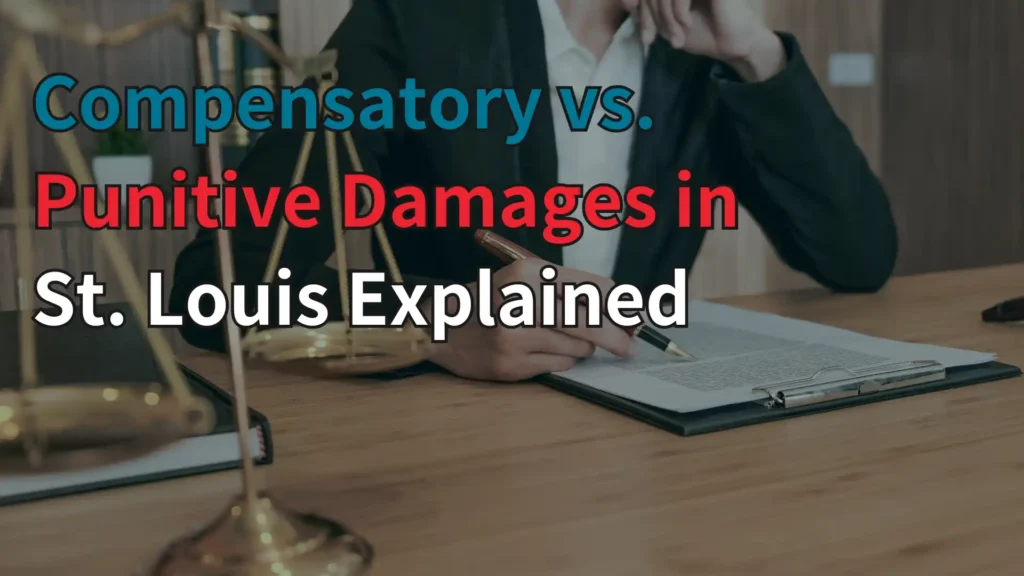
Filing a personal injury claim after an accident someone else caused gives you an opportunity to seek compensation. This compensation generally comes in the form of compensatory damages, sometimes punitive depending on the circumstances of the accident. Understanding the difference between compensatory vs. punitive damages will give you a better sense of what you might be able to expect from your compensation in a St. Louis personal injury claim.
The primary difference between compensatory and punitive damages is the intent behind the financial recovery. As the name suggests, compensatory damages compensate you for losses you sustain due to injuries and property damage from an accident caused by someone else’s fault. Compensatory damages should “make you whole” for the financial and personal losses you have suffered or will suffer in the future due to your injuries.
Conversely, punitive damages do not compensate you for losses. Instead, they “punish” the party at fault for your injuries for egregious conduct that shocks the public conscience. Juries rarely award punitive damages in personal injury cases because these types of damages require a higher level of culpability than ordinary negligence, which is the standard in most personal injury cases.
Juries typically get to award punitive damages when they find that a defendant intentionally or willfully injured the plaintiff or caused their injuries through reckless behavior. Recklessness involves a conscious or extreme indifference to the risk that one’s actions may severely injure another person. In addition to punishing an at-fault party for egregious conduct, punitive damages also serve as a deterrent to both the defendant and others.
Compensatory damages in a personal injury case include compensation for both economic and non-economic losses. Economic losses include financial expenses and losses that an injured party can calculate from records such as bills, invoices, receipts, and pay stubs. Examples of typical economic losses in a personal injury case may include:
Non-economic losses include the emotional and personal suffering that results from one’s injuries. Unlike economic losses, calculating non-economic losses requires a more subjective analysis that evaluates the effects of accident injuries on a claimant’s life using one’s life experiences and common sense. Some examples of non-economic losses include:
In rare cases, juries in personal injury lawsuits may award punitive damages to punish defendants for egregious conduct, such as when:
Over the years, the Missouri legislature has imposed statutory caps on compensatory and punitive damages. This includes limits on punitive damages and caps on non-economic losses in medical malpractice claims. The Missouri Supreme Court ruled punitive damages caps unconstitutional, citing infringement on plaintiffs’ rights, but compensatory damage caps remain.
Current compensatory vs punitive damage caps on Missouri personal injury claims include:

Various circumstances may influence your compensation for pain in a personal injury settlement or court judgment. Factors affecting the value of a personal injury case include:
When you’ve suffered injuries in a motor vehicle accident, slip-and-fall, medical malpractice incident, or other accident someone else caused, you deserve skilled legal representation from a St. Louis personal injury lawyer who will fight to hold the other party accountable for your losses. Let Goldblatt + Singer seek the justice you deserve by investigating your accident, building and filing your claim, and managing your case until it’s resolved. Call us today at (314) 231-4100 or contact us online for a free, no-obligation consultation from our team of experienced attorneys to determine what kinds of compensation you might recover in your case. With countless notable cases, our law firm is eager to help you get the justice you deserve.